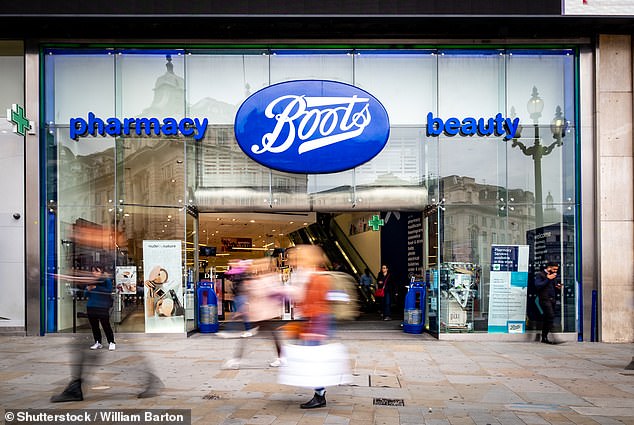The survival of Boots as a stalwart of the High Street and suburbs is testimony to the underlying quality of the enterprise.
Since Nigel Rudd – aka Sir Sell-Off or the man who sold Britain – disposed of Alliance-Boots in 2007, leaving it in the hands of Europe’s pharmacist-in-chief Stefano Pessina and private equity vandals KKR for £12billion, it has been through so much financial engineering that it is hard keep track.
It now finds itself in the hands of another private equity owner, Sycamore. Walgreens has been taken off the public markets for just £8billion (before debt), one-tenth of its worth less than a decade ago.
The value destruction at Walgreens Boots speaks volumes as to how highly leveraged public-to-private backers destroy great businesses.
The list of UK victims is endless, and the results can be seen on almost every High Street in the land.
Many former Debenhams stores, bought by CVC Capital Partners and Texas Pacific in 2003, are still empty hulking wrecks across the nation. Only this week the latest Kantar data showed how supermarket Asda, since it fell into private equity hands, is still shedding market share. Across the Atlantic the destruction and bankruptcy of Toys ‘R’ Us (in which an American cousin was an early investor) is regarded as a textbook case of corporate hooliganism.

Best foot forward: There are hopes that Boots can be set free from Sycamore, without being loaded with debt, as soon as possible
Good businesses are slain and the private equity partners, enjoying the tax breaks which come with carried interest, benefit from a good life of private jets, yachts and lavish parties.
The best that can be hoped is that Boots is set free from Sycamore, without being loaded with debt, as soon as possible. Ideally, it should be refloated on the London Stock Exchange without delay. The concern must be that it will end up in the hands of yet another gang of private equity ghouls.
Boots, with its 1,800 stores and 51,000 employees is not just another retailer. As the home of innovative skin preparation No7 and many of the established perfume and make-up brands it may make more money from beauty than health. But it should never be forgotten that it is a crucial part of Britain’s medical infrastructure. The pharma counter is essential for dispensing medicine in almost every community in the land.
Most independent chemists, providing NHS services, have honed their dispensing skills at the counters of Boots.
Whatever its fate, whether as a free-standing independent company again, or under private equity ownership, change is coming. The odd thing is that it hasn’t happened earlier. Boots’ flagship stores are glistening emporia staffed by well-manicured people in crisp uniforms.
Many of the smaller suburban shops are dingy, in need of redecoration and, one suspects, heading for the chop. It is exasperating that Pessina, with his ambition to build a global pharmacy franchise, chose to do it with private equity partners and piles of debt – a recipe for ruin.
Boots’ uncertain fate also adds to worries about hollowed out High Streets. There have been some great comebacks. Marks & Spencer is a case in point, but it has not been easy. There have been widespread M&S store closures, hurting the High Street, and a retreat into upmarket Westfield-style shopping centres. Other big shocks are on the way.
The decision at WH Smith to focus on travel centres and ditch up to 500 stores is a shocker. It is possible they will find a good owner. But a financially savvy buyer, skilful at navigating administration schemes, looks more likely.
That would almost certainly mean a debt pile, a refinancing of leases, a property sell-down and hundreds of closures.
If good, solid historic brands such as WH Smith can be so easily destroyed there cannot be much hope for Poundland. It prospered in a post financial crisis age of austerity and was a success story.
Poundland, not surprisingly, is badly affected by Labour’s punishing National Insurance contributions on employers.
The entitled middle classes might see the loss of Poundland stores as a net plus. But every empty and abandoned store means fewer jobs, less easy access to no-frills shopping and another wreck on already threadbare streets.
Nobody wants that.
DIY INVESTING PLATFORMS

AJ Bell

AJ Bell
Easy investing and ready-made portfolios

Hargreaves Lansdown

Hargreaves Lansdown
Free fund dealing and investment ideas

interactive investor

interactive investor
Flat-fee investing from £4.99 per month

Saxo

Saxo
Get £200 back in trading fees
Trading 212
Trading 212
Free dealing and no account fee
Affiliate links: If you take out a product This is Money may earn a commission. These deals are chosen by our editorial team, as we think they are worth highlighting. This does not affect our editorial independence.
This article was originally published by a www.dailymail.co.uk . Read the Original article here. .

